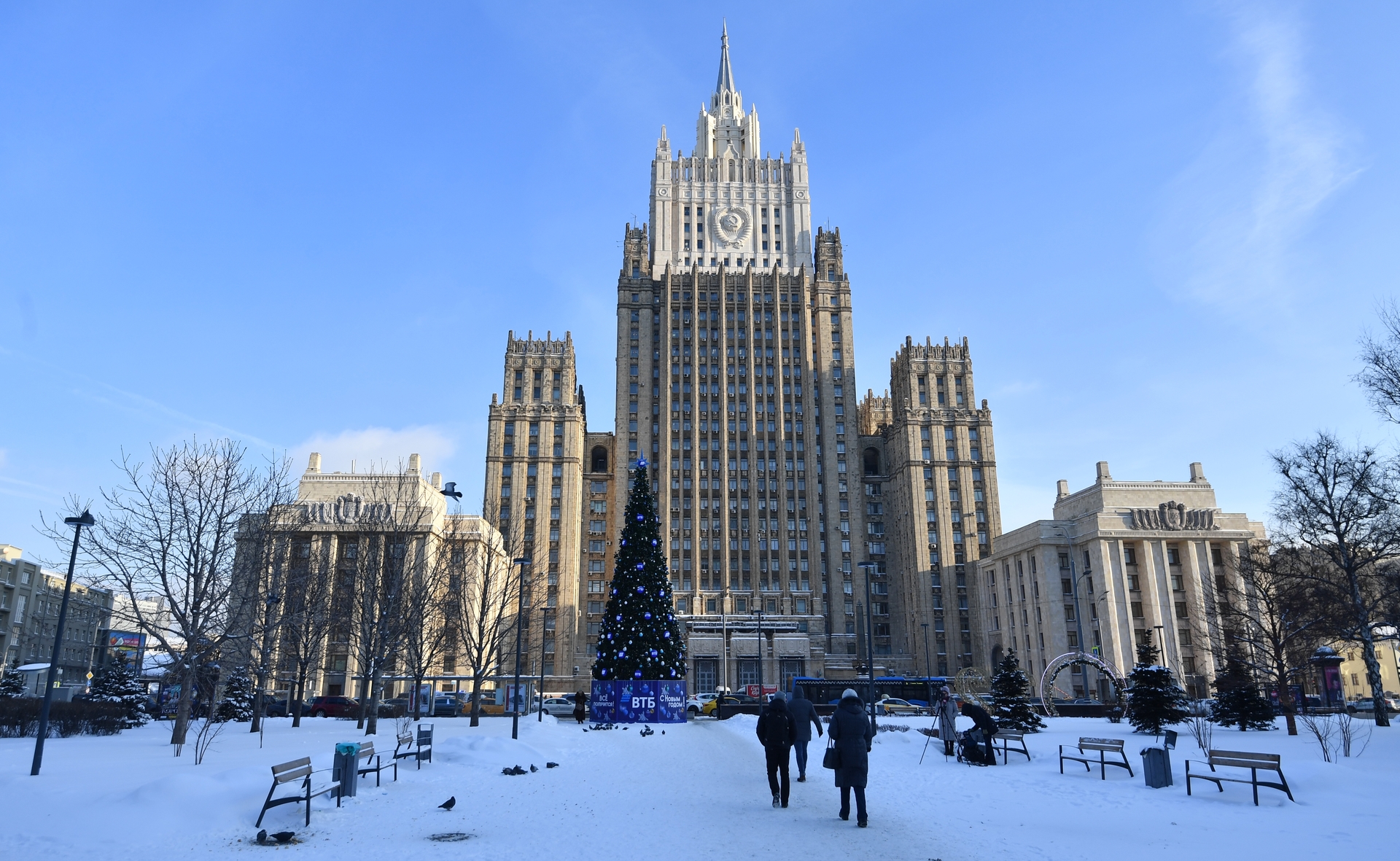Russia has expanded the list of representatives of EU countries and EU institutions who are banned from entering the country.
This was reported to the Foreign Ministry.
The relevant note was sent to the EU Delegation.
The list includes the heads of individual European PMCs, as well as representatives of law enforcement agencies and legislative and executive authorities of a number of EU member states, "bearing personal responsibility for promoting anti-Russian policy and "imposing" measures that infringe on the legitimate rights of Russian-speaking residents and the media."
The Foreign Ministry explained that such a decision was made on the basis of reciprocity and parity against the background of the fact that Brussels continues the "illegal, destructive and senseless" policy of unilateral restrictions against Moscow.
“On a regular basis, discriminatory decisions are stamped in Brussels that arbitrarily restrict the rights of compatriots and Russian organizations.
The basis for their adoption is traditionally unsubstantiated, and sometimes frankly absurd accusations,” the Foreign Ministry explained.
The Russian ministry called on Brussels to abandon the deliberately dead-end sanctions policy against Russia and its allies.
“This is an important prerequisite for restoring stability and security in the Euro-Atlantic space, as well as for normalizing the climate of international relations,” the Foreign Ministry stressed.
RIA News
© Mikhail Voskresensky
Political scientist Ruslan Balbek, in a conversation with RT, noted that the West does not understand the term "negotiations", but only understands the power and principle of reciprocity.
“And since we are not going to beat anyone, we will simply answer in a mirror way.
Not the fact that it will be a sobering shower for some European politicians, but we simply must reciprocate.
We didn’t start it, but we are forced to participate in this action, ”the expert noted.
The introduction of retaliatory sanctions is an absolutely correct and logical step, said Nikita Danyuk, deputy director of the RUDN Institute for Strategic Studies and Forecasts, in an interview with RT.
“In diplomacy and international relations, they are always guided by the principle of reciprocity.
We have repeatedly seen how Russian companies, Russian structures, as well as citizens ended up on EU and US sanctions lists and could not enter the EU.
The unfair restriction of the rights of our citizens should come up against the same symmetrical response, ”the specialist emphasized.
He drew attention to the fact that the West, faced with the mirror steps of Moscow, claims that this is detrimental to bilateral relations.
At the same time, the EU is silent about the fact that Russia always only responds and never takes the first step in the context of sanctions lists.
“It comes to the point that quite recently, as we remember, US Deputy Secretary of State Victoria Nuland could not enter the territory of our country to carry out her professional activities, because she was seen among people who constantly tried to plant an anti-Russian agenda.
As we remember, the Americans very much asked to be excluded from the list.
This happened - however, in exchange for the fact that in the same way our specialist can visit the territory of the United States, ”the expert recalled.
Recall that on April 30, 2021, the Russian Foreign Ministry, in response to EU sanctions, published a list of EU officials banned from entering the country.
The list included eight people, including David Sassoli, then President of the European Parliament.
The representative of the department, Maria Zakharova, in an interview with the Sputnik in Russian YouTube channel, noted that the sanctions imposed by Moscow are exclusively “retaliatory measures for those absolutely unfriendly, and sometimes hostile actions that we see from the collective West.”
Prior to that, on March 2, 2021, the European Union imposed sanctions on the chairman of the Investigative Committee Alexander Bastrykin, the head of the Russian Guard Viktor Zolotov, the head of the Federal Penitentiary Service Alexander Kalashnikov and the Prosecutor General Igor Krasnov.
In addition, on March 22, the EU included in the sanctions list the Deputy Prime Minister of the Chechen Republic Abuzaid Vismuradov and the former head of the police of the city of Argun Ayub Kataev.
Russian presidential spokesman Dmitry Peskov stressed that Moscow considers any restrictions such as those introduced “absolutely unacceptable” because they harm “already in a deplorable state” relations with the United States and the European Union.

